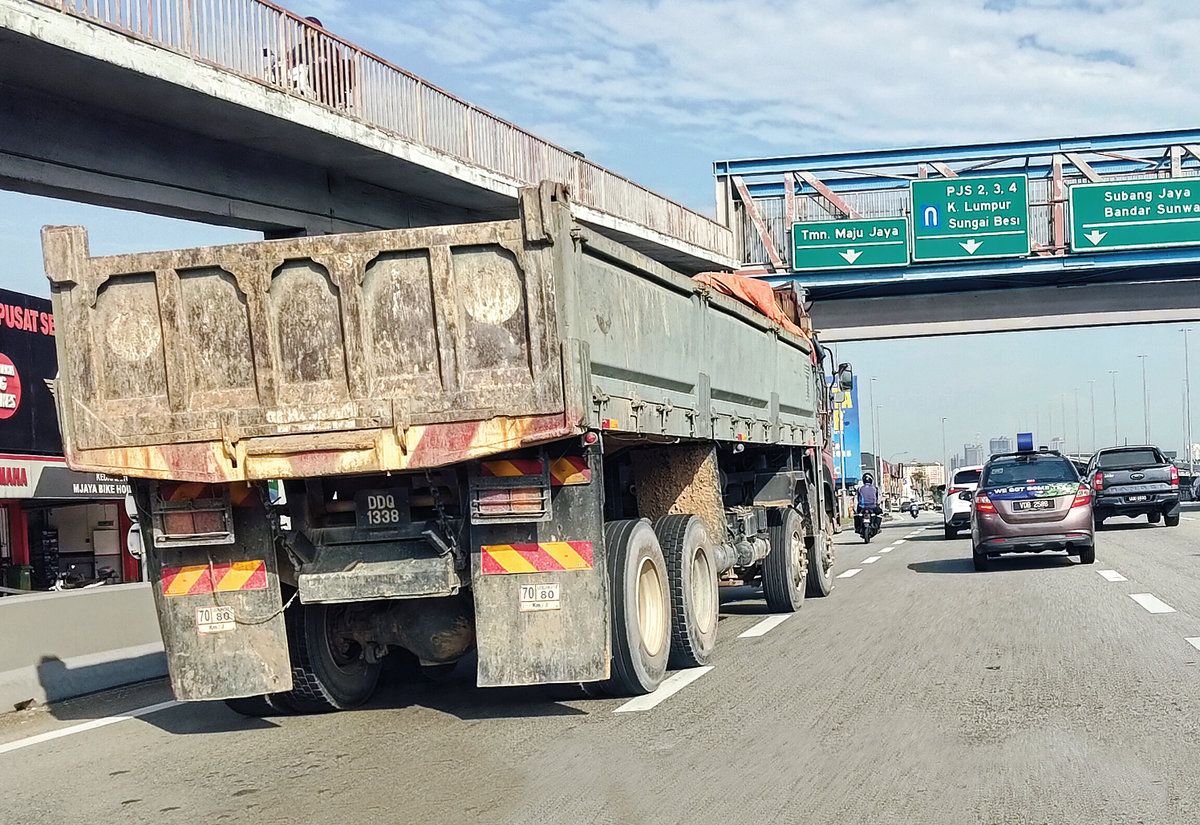PETALING JAYA: Experts have called for stricter enforcement on road restrictions for heavy vehicles during peak hours, with enhanced surveillance by authorities and the use of technology to detect rule breakers.
The ban, which was imposed by the Malaysian Highway Authority on Feb 19, applies to the NSE, NKVE, Elite and DUKE highways during peak hours (6.30–9.30am and 4.30–7.30pm) Mondays to Fridays, excluding public holidays. However, complaints persist that heavy vehicles continue to ply these highways during the restricted hours.
Malaysian Road and Transportation Safety Association president Md Hairolazaman Muhamed Nor acknowledged the ban’s effectiveness in easing highway congestion but noted there were weaknesses in enforcing the ban.
“From my observation, there’s a significant drop in travel time since the ban was enforced. A route that used to take me an hour and 30 minutes now takes less than an hour.
“So, in terms of a reduction in traffic congestion, the objective has been achieved.”
Hairolazaman also said enforcement remains inconsistent, with some logistics companies and drivers still operating during restricted hours.
“There are drivers who knowingly ignore the rule, and in some cases, they’re under pressure from their employers to meet tight delivery schedules.
“On top of that, enforcement isn’t always present. Sometimes there are officers, sometimes none at all.”
He proposed installing closed-circuit television cameras at strategic entry points to bolster enforcement, particularly where manpower is limited.
Hairolazaman also recommended linking captured footage to enforcement databases to enable the automatic issuance of summonses which target transport companies, not just individual drivers.
“The issue is, some companies treat summonses lightly, knowing there’ll be massive discounts at year-end.
“That kind of practice undermines the whole objective. Once a fine is issued, there should be demerit points, followed by audits and permit suspensions if safety rules are breached.”
He said the Kejara demerit system, while in place, is not being fully leveraged.
“The system exists but isn’t fully implemented. Drivers with multiple violations still manage to renew their licences.
“If we want behavioural change, we need to close that gap.”
Universiti Tun Hussein Onn Malaysia road safety expert Professor Dr Kamaruddin Ambak said inadequate on-ground monitoring may be encouraging non-compliance.
“Some drivers may feel emboldened to flout the restriction because they sense enforcement is inconsistent.
“Without frequent or visible monitoring, they assume the risk of getting caught is low.”
To counter this, Kamaruddin suggested deploying smart surveillance systems with automatic number plate recognition technology.
“We need intelligent cameras capable of licence plate recognition (LPR).
“It allows for faster, more accurate detection of heavy vehicles entering restricted zones during peak hours.”
He said LPR-based enforcement would allow authorities to link violations directly to logistics companies, ensuring accountability at the organisational level.
“These companies are traceable. Once identified through plate recognition, summonses can be issued immediately and efficiently.
“This would make enforcement more systematic – similar to how RFID (radio-frequency identification) and electronic toll systems already work on our highways.”
Additionally, National Road Safety council member Tan Sri Lee Lam Thye said weak enforcement could stem from a shortage of traffic personnel.
“From what I see, traffic congestion worsens by the day, and allowing heavy vehicles on highways only adds to the chaos.
“There are simply too many vehicles to monitor, and we don’t have enough manpower to enforce the ban effectively.”









